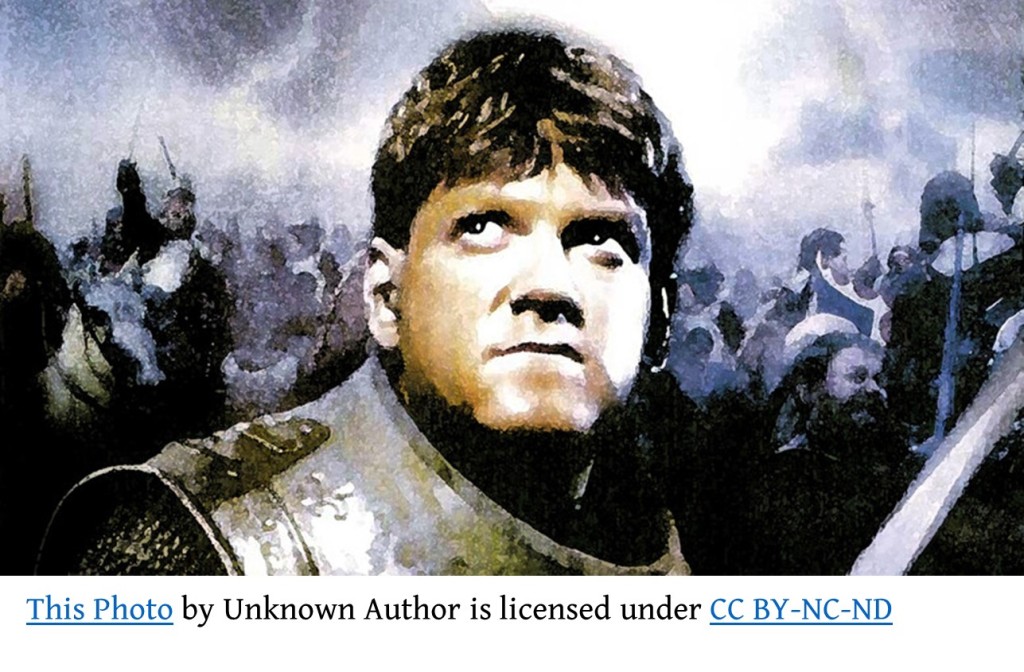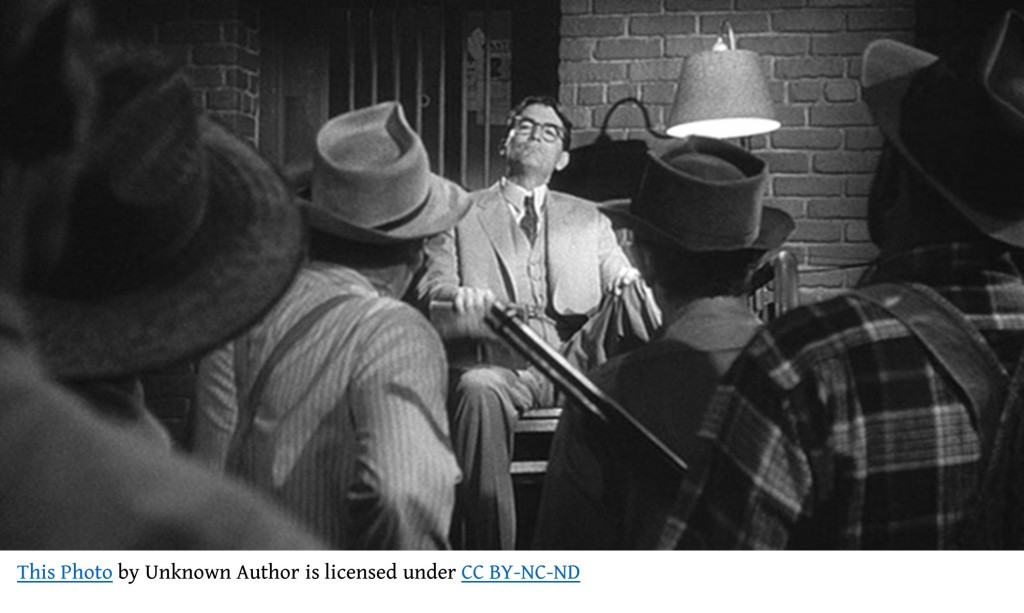
The following is my part of a discussion I had on Facebook the other day.
A friend of mine had posted something Liberal on his page. A conservative friend of his, referred to here as Name Deleted, talked about how he would “K” Democrats. He said he meant “Kiss.” No one believed him.
- Fred: Violence of any kind is never the answer.
- Name Deleted: Sure, Fred. You grow up in church. You be good.
- Fred: I’m an atheist, and ad hominem attacks are not arguments. Violence continues to be no answer.
- Name Deleted: Pacifist. Nope not here. Grew up military and country. Saw a lot of stuff in my life. Called survival.
- Fred: Also irrelevant to attack me instead of my argument. You also gave me your personal history, which is also not an argument. Violence means someone is hurt. It usually means someone is killed. Whatever Good you believe you accomplished with your violence is denied to those who die. Violence is the answer used by those who cannot be moved by words and logical arguments. It is the answer of the intellectually ineffective.
- Name Deleted: Fred Eder You Win Freddy. Attack you. Wow. Fragile. You win. Bye.
- Fred: Thanks for the discussion.
No, of course I didn’t change his mind. I’ve been on Facebook for nearly 14 years now, and in that time I’m not aware of anyone ever changing their minds based on any sort of debate there. I recognize the futility of the effort. Why, then, should I continue to try?
It’s because I believe in the power of words. Words can inspire. They can change world views. They can inform. They can lift us out of our ordinary experiences and show us a universe we had never imagined before. They both begin and end wars. They set humanity apart from most of the rest of life on this planet. There are hypotheses that other animals communicate, but we are unique, as far as I know, in written language, an alphabet, and our ability to be moved by thoughts from thousands of years ago. The words I wrote might cause someone, somewhere, some time, to reconsider their own thoughts, even though I have no idea who that person is. The best any writer can hope to do is to move a stranger. I recognize that Good people sometimes commit acts of violence. They are expected of our military, and they are often necessary for members of the law enforcement community. But they always represent a failure of our intellect. Soldiers, sailors, and marines don’t kill others for fun. They do so on the orders of leaders who were unable to use language to convince other leaders to do what they believed needed to be done.

Shakespeare took this up in Henry V:
… for we know
enough, if we know we are the king’s subjects: if
his cause be wrong, our obedience to the king wipes
the crime of it out of us.
But if the cause be not good, the king himself hath
a heavy reckoning to make, when all those legs and
arms and heads, chopped off in battle, shall join
together at the latter day and cry all ‘We died at
such a place;’ some swearing, some crying for a
surgeon, some upon their wives left poor behind
them, some upon the debts they owe, some upon their
children rawly left. I am afeard there are few die
well that die in a battle; for how can they
charitably dispose of any thing, when blood is their
argument? Now, if these men do not die well, it
will be a black matter for the king that led them to
it; whom to disobey were against all proportion of
subjection.
The most common argument about the need for violence comes in explaining why Neville Chamberlain was wrong not to go to war with Germany earlier than he did. There can be no debate that Hitler needed to be stopped, and history suggests violence was necessary to accomplish that. This is a powerful argument, but, for me, it misses the point.
That Hitler was mentally ill can hardly be debated. He was, in simplest terms, intellectually ineffective. He couldn’t be persuaded by words he didn’t like. He loved the fame, the power, and the glory that were heaped upon him by the citizens of Germany at the beginning. He was empowered by those who believed in the hatred he preached.

Hatred is an extreme form of Anger. Anger is caused by fear. (See Episode 123: “The Problem of Anger” for more on this.) People feared Germany’s collapsing economy would cause them to plummet into poverty and homelessness. I think many of us are familiar with this fear today in America. Hitler gave them somewhere to focus that anger. It grew to the hatred necessary to kill more than 6 million people simply for being different.
What we see is a massive failure of intellect. We see the power fear has to overrule our intellects.
There are those who claim this is built into our psyche by our earliest evolutionary stages. Fight or Flight kept us alive for quite a long time. Fight became synonymous with courage, flight with cowardice. We’re told to admire courage over cowardice. Running away from an attack is not heroic. There are few movies made about those who choose flight over fight. We simply don’t admire such people.
On the other hand…

“I wish Bob Ewell wouldn’t chew tobacco,” was all Atticus said about it.
According to Miss Stephanie Crawford, however, Atticus was leaving the post office when Mr. Ewell approached him, cursed him, spat on him, and threatened to kill him. Miss Stephanie (who, by the time she had told it twice was there and had seen it all—passing by from the Jitney Jungle, she was)—Miss Stephanie said Atticus didn’t bat an eye, just took out his handkerchief and wiped his face and stood there and let Mr. Ewell call him names wild horses could not bring her to repeat. Mr. Ewell was a veteran of an obscure war; that plus Atticus’s peaceful reaction probably prompted him to inquire, “Too proud to fight, you niggerlovin‘ bastard?” Miss Stephanie said Atticus said, “No, too old,” put his hands in his pockets and strolled on. Miss Stephanie said you had to hand it to Atticus Finch, he could be right dry sometimes.
Jem and I didn’t think it entertaining. “After all, though,” I said, “he was the deadest shot in the county one time. He could—”
“You know he wouldn’t carry a gun, Scout. He ain’t even got one—” said Jem. “You know he didn’t even have one down at the jail that night. He told me havin‘ a gun around’s an invitation to somebody to shoot you.”
“This is different,” I said. “We can ask him to borrow one.”
We did, and he said, “Nonsense.”
— Harper Lee, To Kill a Mockingbird, Chapter 23
Atticus is a hero. Anyone can hit someone. That’s easy. One could certainly argue, from at least a legal standpoint, that Atticus would have been justified in hitting Bob Ewell. I suspect a first-year law student could get him acquitted with self-defense. I could be wrong. I know many people who would have knocked Ewell on his ass for that. I know many more who would applaud Atticus for kicking Ewell’s ass. And, again, hitting someone is easy.
You know what’s tough? It’s tough to tolerate such an insult without responding. I maintain Atticus is tougher than Rambo. I suspect many of you will disagree. You’re welcome to do so.
Bravery doesn’t exist without fear. How we deal with our fears is what defines us. When we use our language instead of physical force, we save each other pain that solves little. Though it’s doubtful that Gandhi said, “An eye for an eye leaves the whole world blind,” the sentiment is correct. I can hurt you, and you can hurt me. Which of us can hurt the other most is irrelevant. It would be better for both of us if neither of us was hurt. I decline to derive pleasure from your pain. My life is no better because yours is worse. And I won’t like myself as well if I hurt you.
One of the first things we teach our children is to use their words. We don’t express displeasure by throwing a tantrum anymore because we’ve grown beyond that. When I was 3, it would have surprised no one that I threw a tantrum because Mommy didn’t let me have a cookie before dinner. I wouldn’t do that today. Neither would you. We’re adults, and we have learned better ways to deal with our feelings. We’ve grown. We need, as a species, to continue to grow. We need to learn to use our words, just as our parents taught us when we were 3.

My hope is my words can get you to reconsider your feelings about violence. I hope we can stop creating a blind world and start creating a world in which we learn compassion, empathy, and love.
I’m 60, diabetic, disabled, and defenseless. I have no doubt you can beat the hell out of me for suggesting ideas with which you disagree. Which of us will be better off? Will you have proven anything other than that you’re capable of physically hurting me? Does that make you heroic? You would be, in my mind at least, substantially more heroic by using your intellect to change my mind instead of your power to increase the pain I experience every day. I invite you to do that in the comments on Patreon, on my Facebook page, or on the show’s Facebook page. You can even send me something in Facebook Messenger. Or you can hit me. (And you wonder why I never leave the house??) Which do you think is better?